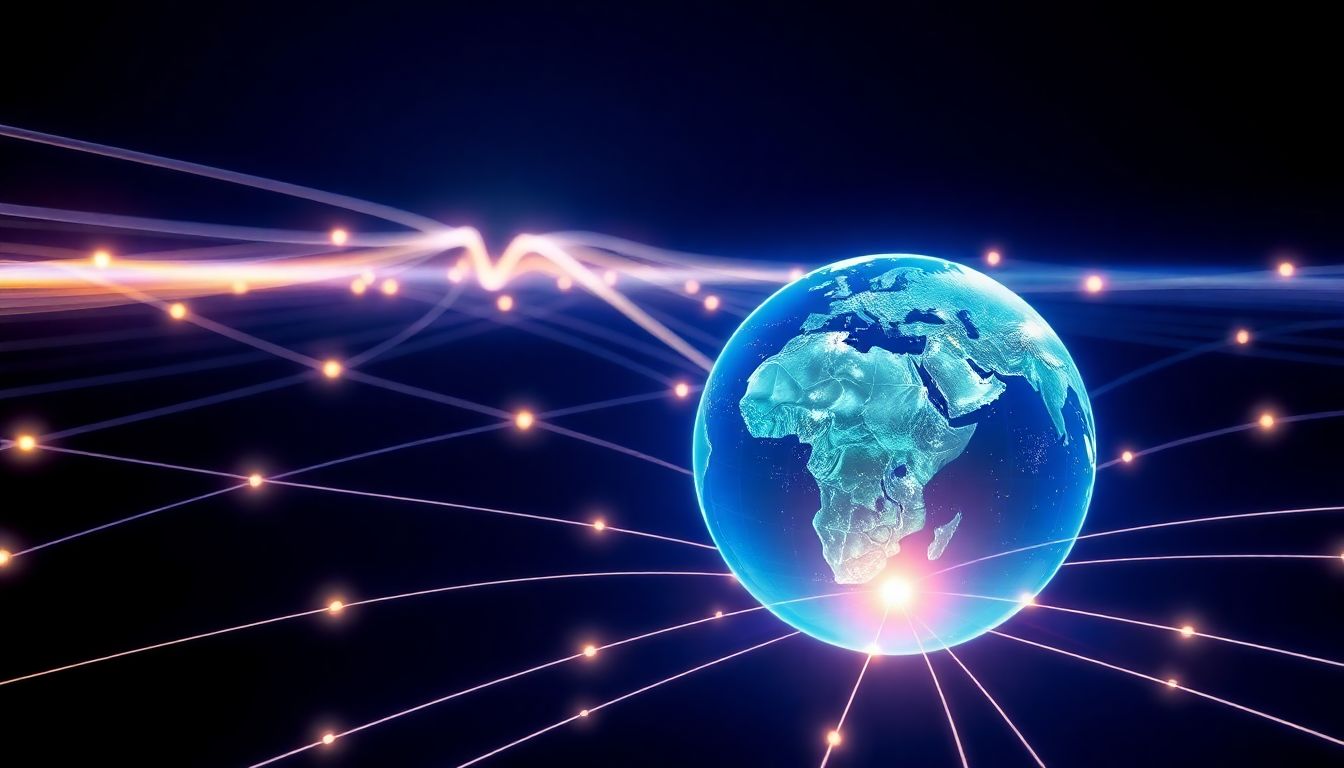
What is GPS? A Comprehensive Guide to Global Positioning System
Imagine you're lost in a foreign city. Your phone's GPS guides you back to your hotel. Or think about emergency services using GPS to find someone in trouble. GPS is a tool we rely on every day, often without even noticing. A Global Positioning System is a satellite-based navigation system. This article will explain how GPS works, its many uses, and its impact on society.
How GPS Works: The Science Behind Location Tracking
Ever wondered how your phone knows exactly where you are? GPS is the key. This section will break down the science of GPS in an easy way.
Satellite Constellation
GPS relies on a network of satellites orbiting Earth. There are at least 24 of these satellites. They orbit at an altitude of about 20,000 kilometres. They're arranged to make sure at least four satellites are visible from almost anywhere on Earth. Multiple satellites ensure precise location tracking.
Trilateration: Pinpointing Your Location
Trilateration is how GPS finds your location. Imagine each satellite sends a signal to your device. The device measures the distance from each satellite. With distances from three or more satellites, your location can be pinpointed. Think of it like drawing circles on a map; where they cross is your location.
Signal Transmission and Receivers
GPS satellites constantly send signals. GPS receivers in smartphones and cars pick up these signals. These receivers calculate the distance to each satellite based on the time it takes for the signal to arrive. Some things can affect accuracy. Atmospheric conditions or buildings can block signals. GPS systems use clever tricks to reduce these errors.
Applications of GPS Technology: Beyond Navigation
GPS isn't just for finding directions. It has many more uses than you might think. Let's explore some of them.
Transportation and Logistics
GPS is a game-changer for transportation and logistics. Shipping companies use GPS to track deliveries. Delivery services optimise routes with it. Fleet management becomes much easier. This improves efficiency and saves costs for businesses.
Surveying and Mapping
GPS helps to create accurate maps. Surveyors use it for precise land measurements. It is vital for construction projects too. Also, it helps monitor the environment. GPS offers better accuracy than older methods.
Emergency Services and Disaster Relief
In emergencies, GPS is a lifesaver. Search and rescue teams use it to find people. Disaster relief efforts rely on it for coordination. There are numerous stories of lives saved because of GPS tech.
The Evolution of GPS: From Military Origins to Civilian Use
GPS has a rich history. It started as a military project and then became available for everyone. Here's a look at its journey.
The Cold War Roots
GPS began as a military project during the Cold War. The goal was to create a navigation system that couldn't be disrupted. This led to early challenges and amazing technological leaps.
Civilian Access and the Rise of GPS Technology
A key moment happened when GPS was opened to the public. This decision led to the creation of GPS devices and apps. It changed how we navigate and explore the world.
Future Trends and Innovations
GPS keeps getting better. Augmented GPS (A-GPS) makes it faster and more accurate. GPS is being integrated with IoT devices and self-driving cars. The future of GPS looks very exciting.
Benefits and Limitations of GPS
GPS is great, but it's not perfect. Let's look at the good and bad sides.
Advantages of GPS Technology
GPS has many benefits. It's accurate and easy to use. It covers the entire globe. GPS improves efficiency, safety, and productivity.
Potential Drawbacks and Challenges
GPS also has limits. Signals can be blocked or interfered with. Reliance on GPS raises privacy questions. Accuracy can be poor in cities with tall buildings or indoors.
Optimizing GPS Accuracy: Tips and Tricks
Want to get the best GPS accuracy? Here are some helpful tips.
Understanding Signal Strength and Obstructions
GPS accuracy depends on signal strength. Buildings and trees can block signals. Try to avoid these obstructions. This will improve your GPS reception.
Using Assisted GPS (A-GPS)
A-GPS uses cellular data to boost GPS performance. It speeds up the GPS lock and improves accuracy. Check your phone's settings to enable A-GPS.
Conclusion
GPS has changed the world. This article has explained how it works, its many uses, and its history. It's clear that GPS is a crucial part of modern life. As GPS technology continues to improve, its impact will only grow.
